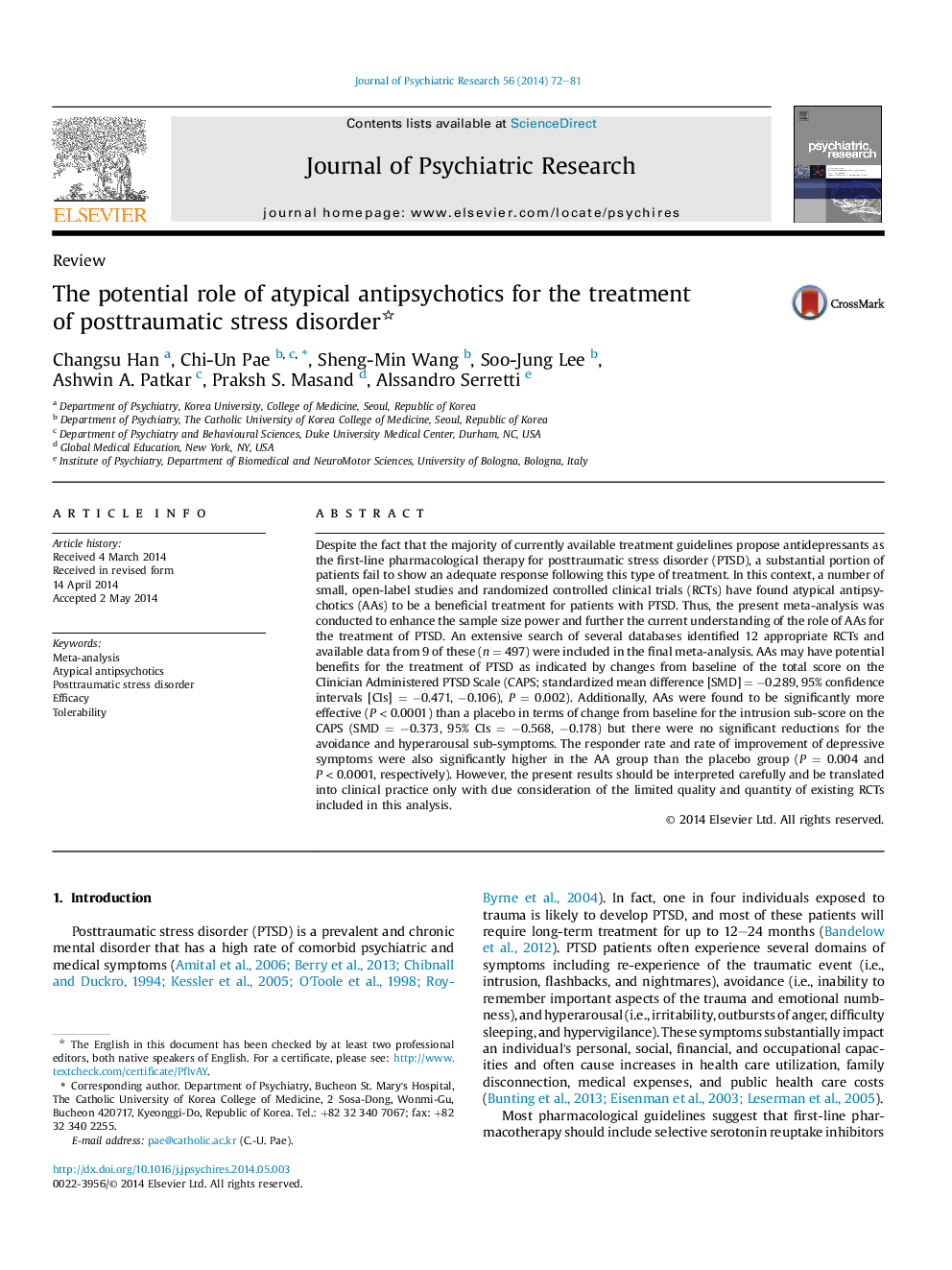| Article ID | Journal | Published Year | Pages | File Type |
|---|---|---|---|---|
| 326986 | Journal of Psychiatric Research | 2014 | 10 Pages |
Despite the fact that the majority of currently available treatment guidelines propose antidepressants as the first-line pharmacological therapy for posttraumatic stress disorder (PTSD), a substantial portion of patients fail to show an adequate response following this type of treatment. In this context, a number of small, open-label studies and randomized controlled clinical trials (RCTs) have found atypical antipsychotics (AAs) to be a beneficial treatment for patients with PTSD. Thus, the present meta-analysis was conducted to enhance the sample size power and further the current understanding of the role of AAs for the treatment of PTSD. An extensive search of several databases identified 12 appropriate RCTs and available data from 9 of these (n = 497) were included in the final meta-analysis. AAs may have potential benefits for the treatment of PTSD as indicated by changes from baseline of the total score on the Clinician Administered PTSD Scale (CAPS; standardized mean difference [SMD] = −0.289, 95% confidence intervals [CIs] = −0.471, −0.106), P = 0.002). Additionally, AAs were found to be significantly more effective (P < 0.0001) than a placebo in terms of change from baseline for the intrusion sub-score on the CAPS (SMD = −0.373, 95% CIs = −0.568, −0.178) but there were no significant reductions for the avoidance and hyperarousal sub-symptoms. The responder rate and rate of improvement of depressive symptoms were also significantly higher in the AA group than the placebo group (P = 0.004 and P < 0.0001, respectively). However, the present results should be interpreted carefully and be translated into clinical practice only with due consideration of the limited quality and quantity of existing RCTs included in this analysis.
